Best Bass Strings
Give your bass a boost with our pick of the best bass guitar strings around
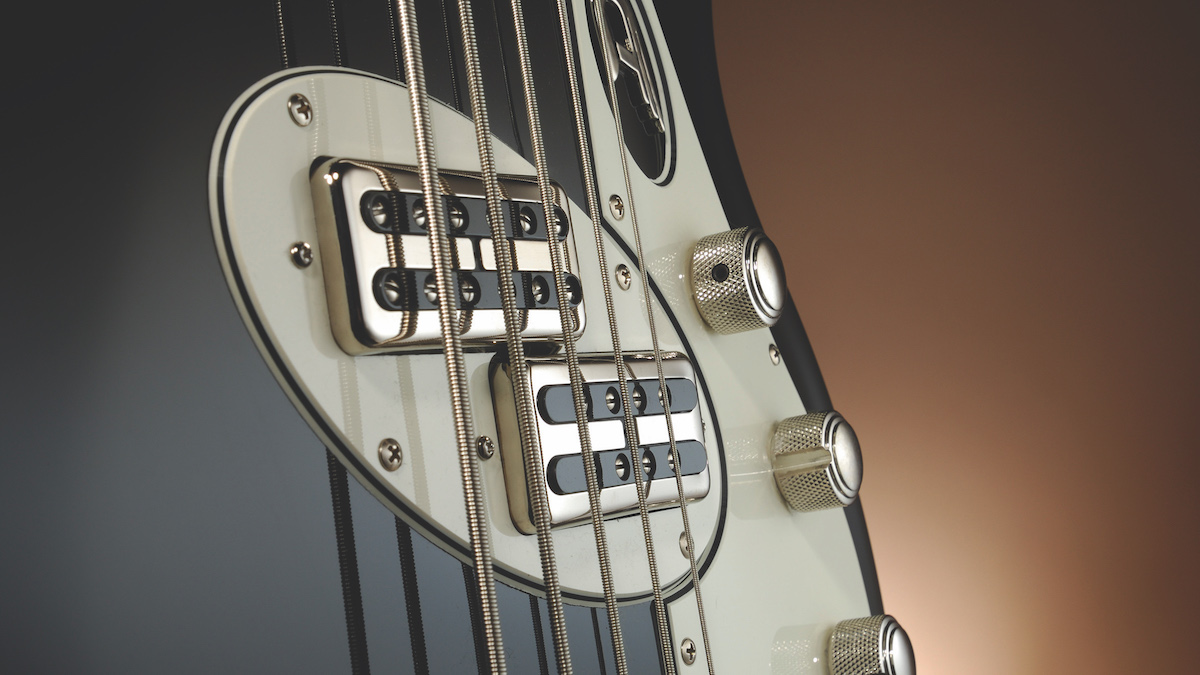
The agony of choice is a big issue when it comes to picking the best bass strings for you. There are hundreds, maybe thousands of sets on the market, utilising different materials and technologies, each promising varying amounts of improved playability, greater longevity, vintage tones, modern tones and more. So where does the humble purveyor of low end begin?
Right here, of course! In our list of some of the best bass guitar strings currently available, we’ll help you choose a set that’s right for you and your bass guitar. Truthfully, we could’ve listed a hundred sets, but we’ve distilled it down to just ten, each with a few pointers to help you decide whether it’s the right set for you. They’re all available to buy online too, and we’ve found the best prices for you – just follow the links.
What are the best bass strings?
MusicRadar's got your back
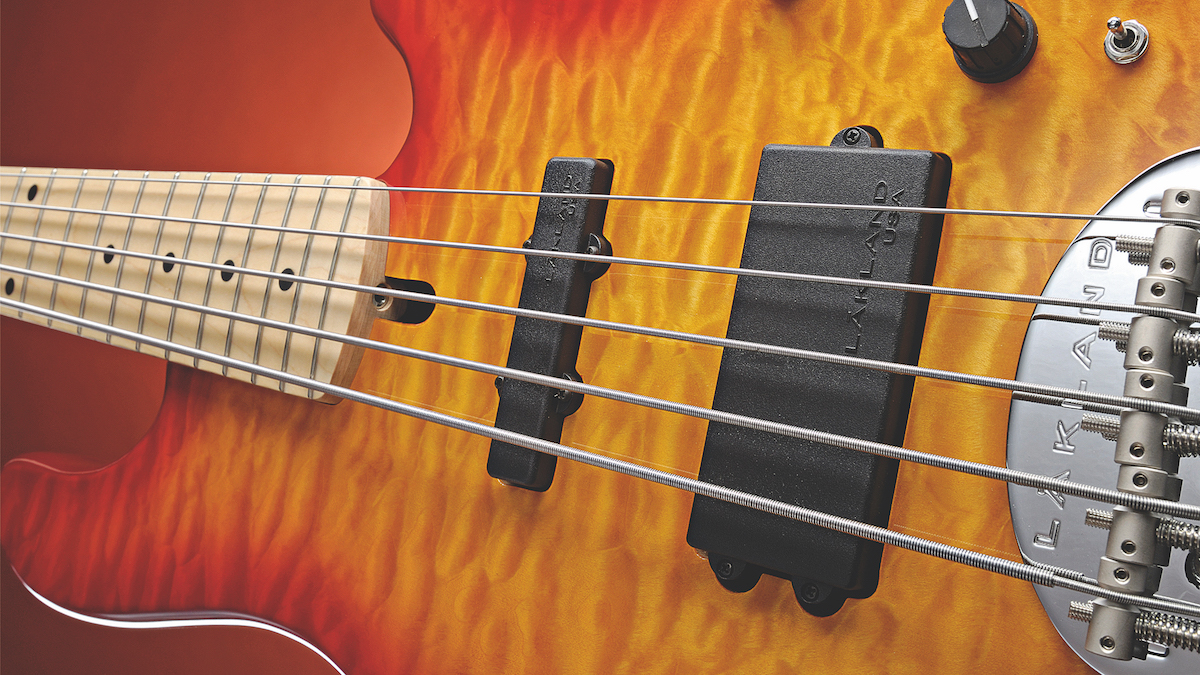
For flatwounds, we’d opt for a set of Rotosound Jazz Bass 77s, their tonal versatility tipping the balance over other strings. However, if you have two basses in your collection, or if you’re looking for pure vintage tones, consider the Tru Bass 88, also from Rotosound.
For roundwound strings, the options are seemingly endless. For a versatile everyday string, we’d be choosing between Ernie Ball’s Regular Slinkys and D’Addario’s NYXLs. Which you choose depends on your tonal requirements – the Slinkys’ top-end has more bite than the warmer sounding D’Ads, but both are great strings.
How to buy the best bass strings for you
Tone and playability are your primary concerns. Let’s deal with tone first. The material a string is made of has the biggest impact on its sound. And, though each company chooses certain alloys, bass strings are made of broadly similar materials.
- Nickel - Pure nickel strings have a warm sound, without too much treble bite or low-end. Perfect for the vintage tones of ‘50s/’60s pop, soul and rock.
- Stainless steel - Tonally speaking the opposite of nickel strings, stainless steel is clear and bright, with clarity throughout the frequency range – great for modern sounds.
- Nickel-plated steel - No surprises, nickel-plated steel offers a compromise between pure nickel or stainless steel. An all-round option for the bassist who plays a bit of everything.
There’s a choice to be made between flatwound and roundwound strings, too. Flatwounds have a smooth, flat surface compared to the ridged feel of roundwounds. Expect vintage style tones, reduced string noise and improved playability from flats (they’re kinder to fretless fingerboards too), but opt for roundwounds for bright, contemporary sounds.
As regards playability, generally lighter gauges are great for slap bass or fast leads, whereas a weightier set will give you fatter tone for heavy metal, modern RnB and for downtuning.
String companies have a few technical tricks up their sleeves too. A thinner core can make the string feel more pliant, and smoother, softer metal alloys can be used on windings to improve feel. Finally, consider coated strings, which, though primarily designed to aid longevity, keep your strings feeling fresh, smooth and easy to play for longer.
The best bass strings available today
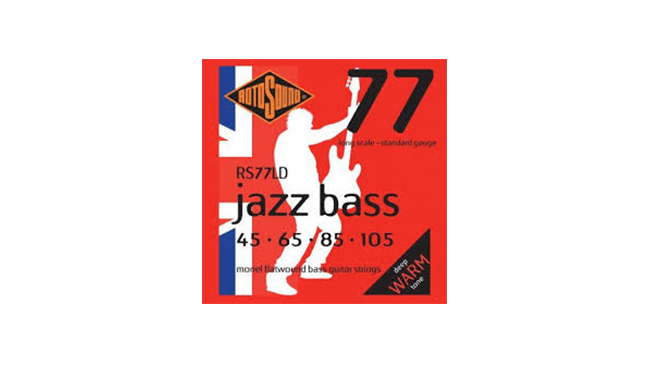
Rotosound Jazz Bass 77
Specifications
Reasons to buy
Rotosound’s Jazz Bass 77 strings have been used by the likes of Phil Lynott, Roger Waters, John Deacon, Glen Matlock, Sting and Dee Murray (Elton John), amongst many others. This esteemed selection of players alone should give you some idea of the kind of sounds you can dial in with a set of Rotosound’s classic bass strings.
Brighter and deeper than the traditionally warm sound of flatwounds, the Roto 77s clearly have a sweet spot for ‘70s rock. But there’s enough juice at the frequency extremes for contemporary blues-rock and modern jazz too. A great balance of flatwound warmth with a nod to the more up to date styles.
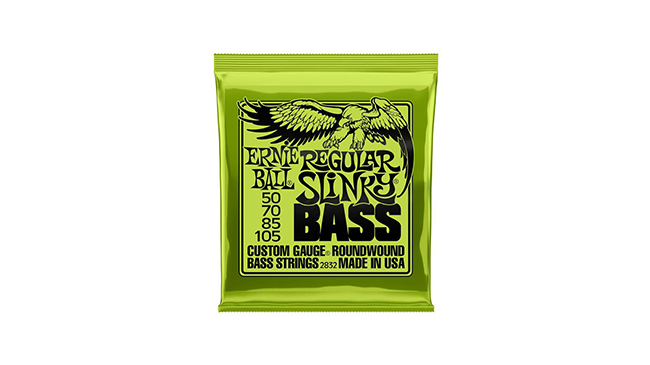
Ernie Ball Regular Slinky Nickel Bass
Specifications
Reasons to buy
Ernie Ball’s Regular Slinky Nickel Bass are a classic set of strings, used by countless pros the world over. You might say they’re something of an industry standard. Renowned for their contemporary sound with growling lows and a bright top end, these Slinkys are best suited to modern rock, pop and metal, rather than warmer vintage tones. They lend themselves well to slap too.
If you’ve never restrung your bass before, this set of Ernie Balls is a solid starting point; bright, but not overly so, they’re a great low to mid-price string and a benchmark to assess other strings by. A decent buy!
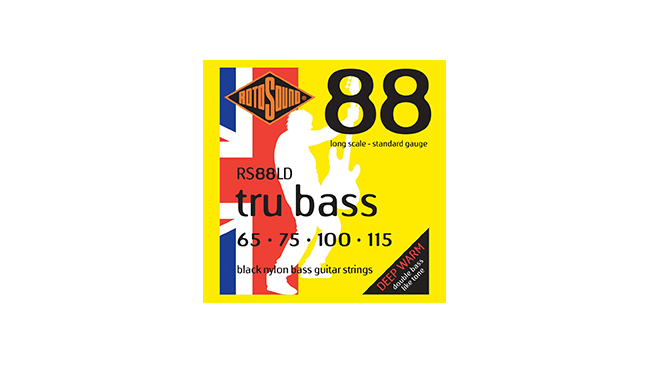
Rotosound Tru Bass 88
Specifications
Reasons to buy
For acoustic and upright style sounds from a regular electric bass you just can’t beat a set of tapewounds – and these Rotosounds are the real deal. Check out their signature tones on The Beatles’ Abbey Roa/ (Paul McCartney), The Jam’s All Mod Cons (Bruce Foxton), David Bowie’s Diamond Dogs and Lou Reed’s Transformer (Herbie Flowers on both).
The Tru Bass 88’s metal core is wrapped in a flatwound nylon winding, offering a deep warm tone with a buttery smooth feel, plus increased dynamic range and touch sensitivity that metal strings simply can’t match. We wouldn’t describe these as a versatile string but if it’s an acoustic vibe you’re after, it just has to be a set of tapewounds.
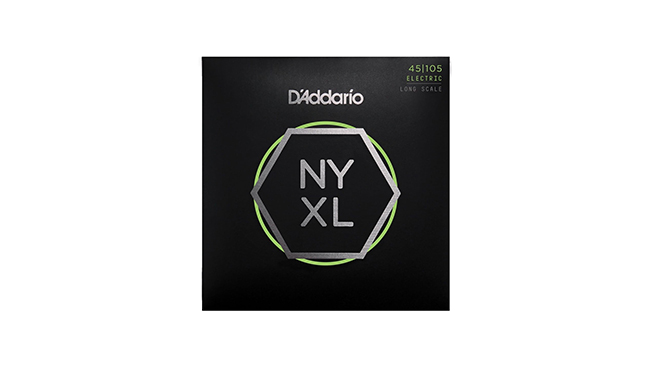
D’Addario NYXL Bass
Specifications
Reasons to buy
Designed as an all-round bass string with a balanced tone suitable for all styles, the NYXLs are competing in the fiercely fought mid-price market – but, crucially, at a higher price than the perennial Ernie Ball Slinkys.
Well, the D’ads may be just the job if you find Slinkys on the bright side – this set are warmer from the get go, without too much new string ‘zing’, but with plenty of midrange clarity and harmonic richness. Fairly smooth to the touch, finger noise should be fairly low too. This generally balanced tone makes the NYXLs ideal for the five- or six-string bass player too, where players will be exploring the extended range.
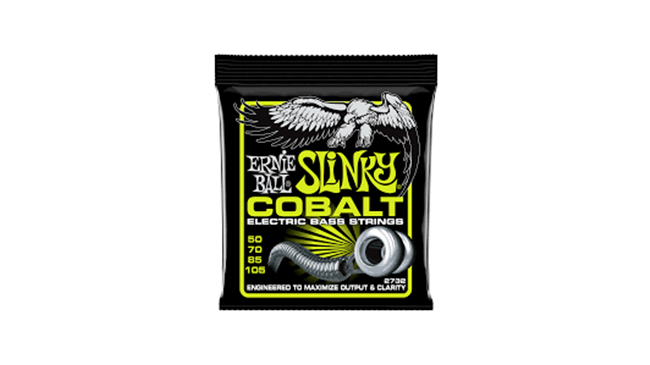
Ernie Ball Regular Slinky Cobalt
Specifications
Reasons to buy
Ernie Ball caused quite a stir when they released their Slinky Cobalts a few years ago. So do they live up to the hype? Well yes, by and large. If you want a high output string with deep lows and crystal clear highs with a slight scoop in the midrange, then the Cobalts are a great option. Prog and metal, funk and slap are all on the cards, but think contemporary rather than classic. There’s no vintage warmth here.
The Cobalts play well too. The iron/cobalt alloy feels smoother and, er, slinkier than anything short of a set of flatwounds, making for great progress across the fretboard. However, you do pay quite a price for Ernie Ball’s technological innovation – these are among the most expensive strings in our list.
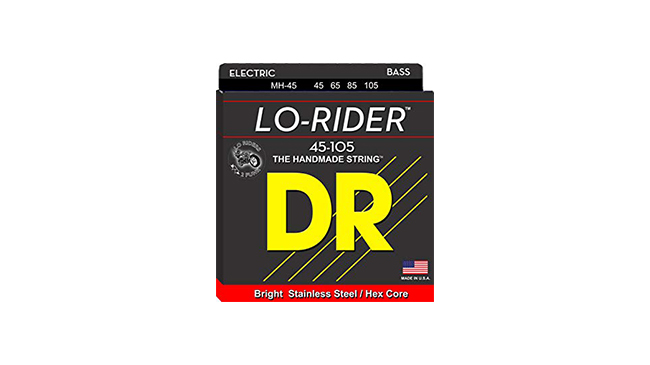
DR Strings Lo-Rider
Specifications
Reasons to buy
Bass players who love to slap, pop and tap will be drawn to this set from DR. With the typical forthright tone of stainless steel, the crystal clear chiming treble makes this a great string for virtuoso techniques. DR say that the higher tension of these strings makes for accurate harmonics as well as great feel for the rigours of slap too. Pair them with an active preamp for a great high end setup.
And they’re not just about the high end. Sting is a Lo-Rider user, their modern tone ideally suited to his late-career material – so these can sure be a versatile everyday option. You might just need to roll off the tone occasionally.
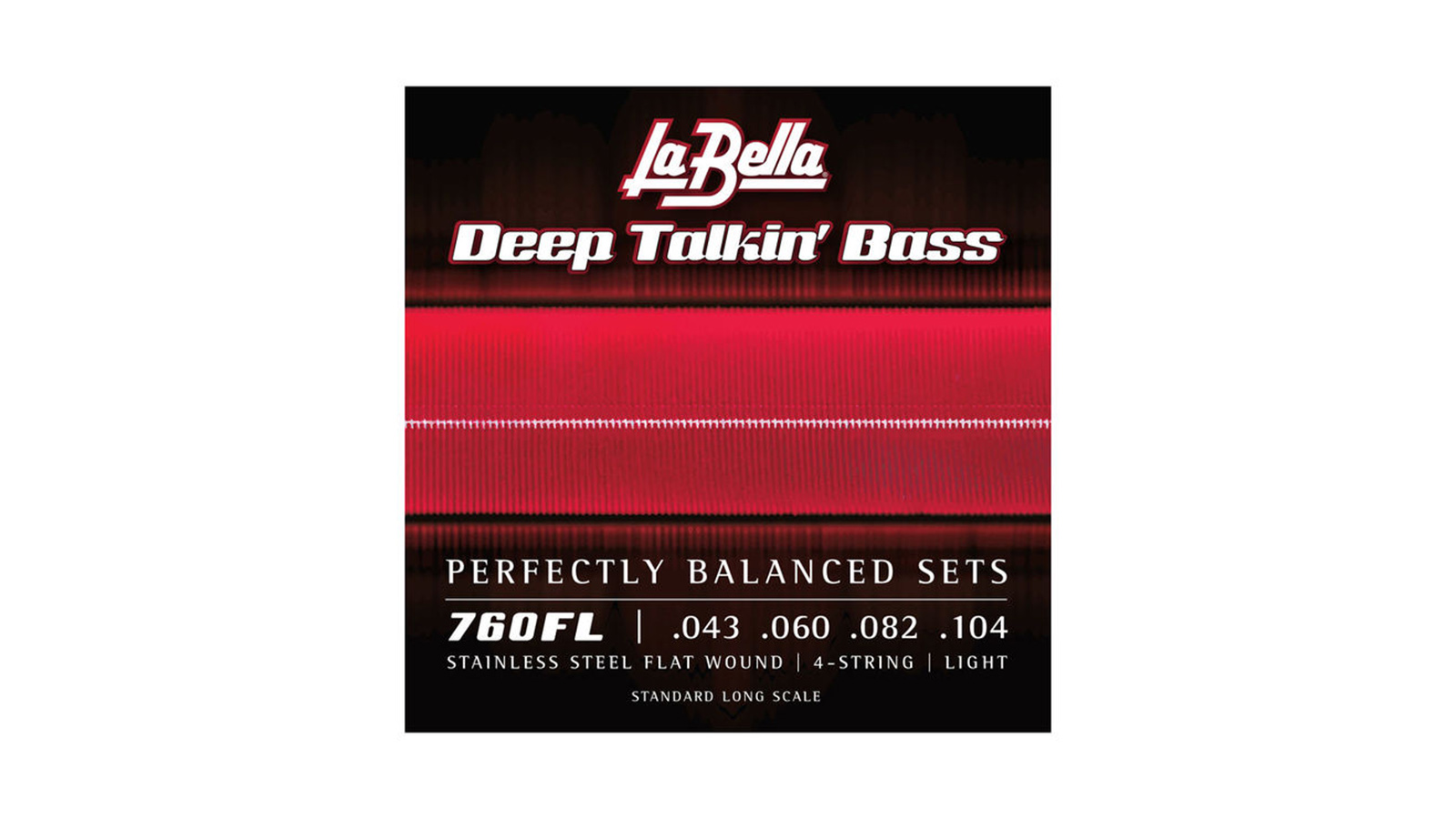
La Bella Deep Talkin’ Bass
Specifications
Reasons to buy
A classic bass string to those in the know, Flatwound La Bellas were the go-to choice of legendary sessionistas James Jamerson and Donald “Duck” Dunn. Opt for a heavy gauge set (as did Jamerson) and make sure to give them at least a couple of months for that new string tone to wear off and their trademark thud to bed in.
They’re in their sweet spot with warmer sounds – so don’t be afraid to roll off your tone pot or follow Jamerson’s lead and jam a piece of foam under the strings beside the bridge for a punchy staccato feel to every note you play. And don’t worry about that high price – you can find them much cheaper online.
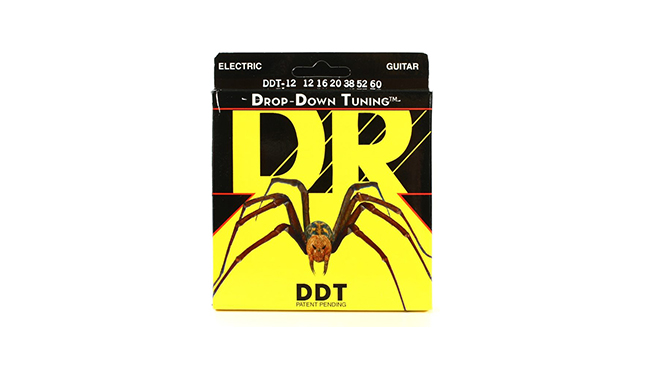
DR Strings DDT
Specifications
Reasons to buy
DR claim their DDT (Drop Down Tuning) strings maintain intonation and offer more natural string tension in drop tunings. Traditionally, you’d bung on a set of heavy gauge strings to drop tune, which, throwing up potential setup issues, isn’t always practical. The idea here is that you don’t have to – a single set of DDT’s can handle a broad range of tunings, feeling neither too tight in standard or too floppy when drop-tuned.
Getting more out of a set of strings can only be a good thing. If you find yourself regularly changing your tuning there’s a lot to be said for the DDTs. They’re perhaps a little warmer than other stainless steel sets, but it’s no big issue.
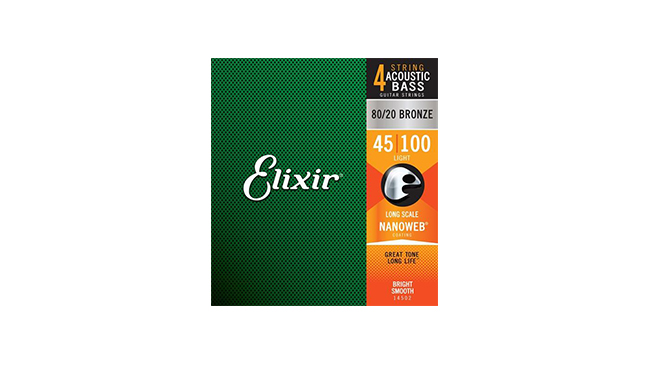
Elixir Nanoweb Acoustic Bass Strings
Specifications
Reasons to buy
Highly respected for their range of coated strings for standard six-string acoustic guitar, Elixir have brought their knowhow to acoustic bass. There’s a crisp, lively tone from the 80/20 (copper/zinc) bronze strings – a tone that’ll be familiar to users of the company’s standard guitar sets.
Elixir’s ultra-thin coating protects the string, preventing grime accumulating between the windings – that means long life and lasting tone. Probably for the best when you’re looking at nearly 40 bucks a set!
Some might say these are over-bright, but we’d argue that’s a matter of taste. We can’t remember the last time we changed the strings on our acoustic bass, so long-lasting tone sounds good to us!
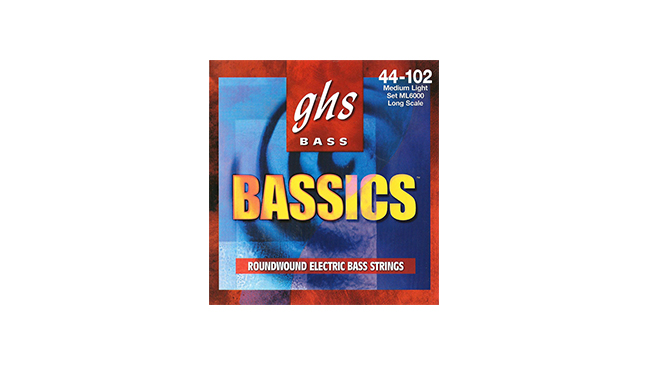
GHS Strings Bassics
Specifications
Reasons to buy
There’s really very little to dislike and plenty to be pleased about with GHS’s budget set of bass strings. A general purpose offering, the Bassics offer a balanced tonal response with extra punch in the low-mids. Don’t expect grinding lows or zingy highs, just a solid all-round tone that’ll see you through any blues, rock, pop or jazz set.
The small-diameter core gives a feel that’s not too stiff. Opt for a medium gauge set and you’ll strike a balance of playability and tone – perfect for beginners or anyone who prefers not to go too far down the tonal rabbit hole. And at this price the Bassics represent a bit of a bargain!
Get the MusicRadar Newsletter
Want all the hottest music and gear news, reviews, deals, features and more, direct to your inbox? Sign up here.
Chris has been the Editor of Total Guitar magazine since 2020. Prior to that, he was at the helm of Total Guitar's world-class tab and tuition section for 12 years. He's a former guitar teacher with 35 years playing experience and he holds a degree in Philosophy & Popular Music. Chris has interviewed Brian May three times, Jimmy Page once, and Mark Knopfler zero times – something he desperately hopes to rectify as soon as possible.










